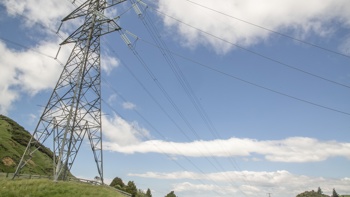The Government has boosted funding for Te Matatini by more than $34 million for the next two years, making it the highest-funded arts service provider.
The funding takes it just above that of the New Zealand Symphony Orchestra for the first time, a previous discrepancy that had long drawn criticism from Māori, in particular Te Pāti Māori.
The Budget funding is part of just over $825m allocated to Māori-focused initiatives.
It includes $200m to improve Māori housing through the Whai Kāinga Whai Oranga programme, for long-term housing supply, capability building and whare repairs.
“Today marks another vital step on the journey to delivering better Māori housing for our whānau,” Associate Minister of Housing (Māori Housing) Willie Jackson said.
“Through this investment, the Government is contributing to a range of housing solutions that will be delivered by Māori for Māori.”
Since last year, the Government had approved or contracted 1018 homes, enabled 1615 infrastructure sites and made repairs 415 to existing homes, Jackson said.
Just over $34m extra will be spent over the next two years on Te Matatini kapa haka festival.
It comes after a hugely-popular event this year where about 1 million people tuned in.
Previously Te Matatini received just under $3m a year – dwarfed by funding to New Zealand Symphony Orchestra at $19.7m and $8.2m to the Royal New Zealand Ballet.
For the next year, Te Matatini funding would rise to just below $20m, while for the orchestra it will drop to just over $18m.
“Te Matatini 2023 showcased incredible talent and mana from across the country and I’m delighted that this Government is further investing in the delivery of the biennial national kapa haka festival,” Associate Minister of Arts, Culture and Heritage Willow-Jean Prime said.
“This new investment builds on the hard mahi over the past year to solidify the foundations for Te Matatini to expand from a biennial, national festival, to also foster and support kapa haka in our regions.”
The Government was also providing $23m over the next four years to Te Ringa Hāpai Whenua Fund, which enables landowners to undertake whenua-based economic, cultural, social and environmental projects. This investment is over $23m over four years.
A further $8m will be funded to Te Tumu Paeroa to support whenua Māori owners to take proactive steps to comply with ongoing regulatory changes.
Jackson said close to $20m will be allocated over the next four years to assist with resilience planning following the cyclones.
“Climate change is at our doorstep, and we need to equip our Māori communities with the information to help safeguard their homes and livelihoods.”
Services provider Whānau Ora would get another $168m over the next four years, which Minister Peeni Heare said reflected the fact more whānau were engaged in its services following the cyclone devastation and increases in the cost of living.
“Our commissioning agencies sprang into action to support communities affected by recent weather events, helping to clear rubbish post-cyclone, planning for housing repairs and ensuring displaced whānau had safe accommodation and immediate supplies.”
The funding would also help expand Ngā Tini Whetu, a programme to support pēpi and māmā during their first 1000 days.
“The programme has changed the wellbeing of these families for the better, we are seeing families take up trade apprenticeships, getting back to studies, financial literacy classes, counselling, substance abuse support and small business training,” Henare said.
Overall the Whānau Ora budget had increased 145 per cent since 2017, Henare said.
On Māori health, this year $132m would build on last year’s funding to establish Te Aka Whai Ora – Māori Health Authority, and continue to fund Māori Health providers.
This would include cheaper access to primary care, innovation funds for data, more rongoā services and provide workforce development.
“Whānau should expect to see more prevention work for long-term conditions, HIV and cancer,” Henare said.
“In addition, we want to see by Māori for Māori solutions for these services, and for priority population groups - kaumātua, taiohi, rangatahi and tāngata whaikaha.
“I am also pleased to see the finalisation and recognition of the first 11 iwi-Māori partnership boards that will help ensure locality plans are tailored to their communities’ health needs and represent the views of whānau Māori in the broader system.”
The Government will also put $225m directly into Māori education to see more buildings being built and modernised, as well as learning support co-ordination funded for kaupapa Māori and Māori medium education that will benefit around 25,000 ākonga in 325 schools and kura.
Almost $10m will go to support the New Zealand Curriculum rollout, including working with up to 57 more iwi to help develop the local content.
“This Government has been deeply committed to addressing the massive inequities that have been allowed to develop in Māori education for too long,” Associate Minister for Education (Māori) Kelvin Davis said.
“Over the years we have invested more than $1 billion to properly fund this space, while also developing and nurturing te reo.”
In Māori justice, $11.7m has been allocated for the Te Ao Mārama programme for the 2023/24 year.
The Matariki public holiday will also receive $18m over the next four years.
Māori media will get $51m spread across two years to build on the $40m set out in the previous Budget. Māori Tourism will get an $8m boost.
Take your Radio, Podcasts and Music with you









